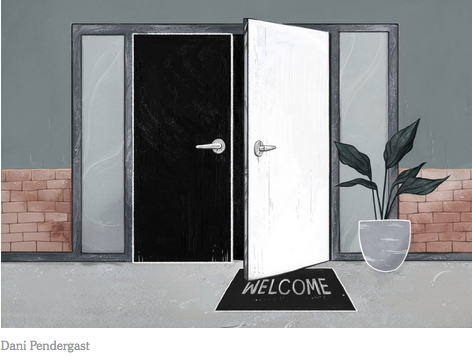Taste-based discrimination — basically, racism — isn’t necessarily the result of conscious thought. In an email, Mr. Tonin, one of the study’s authors, said that it’s possible “this behavior is due to some sort of unconscious bias” and, therefore, that “making people aware of the problem may contribute to the solution.”
If awareness really is the first step toward a fix, then the study may be helpful in refining our understanding of racial discrimination in America. It occurs not only in the labor market and the criminal justice system, but also in countless small frictions every day.
The culprit may not be a hate-spewing white nationalist, but rather a librarian or a school administrator or a county clerk, unaware that she’s helping some clients more than others.




